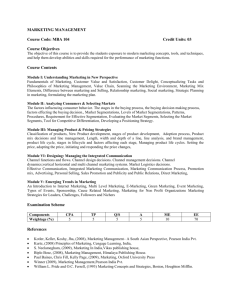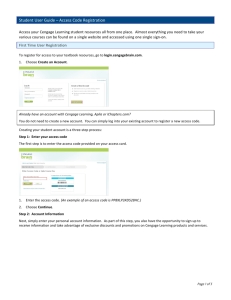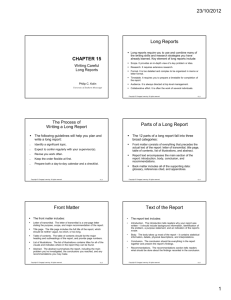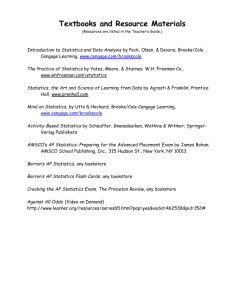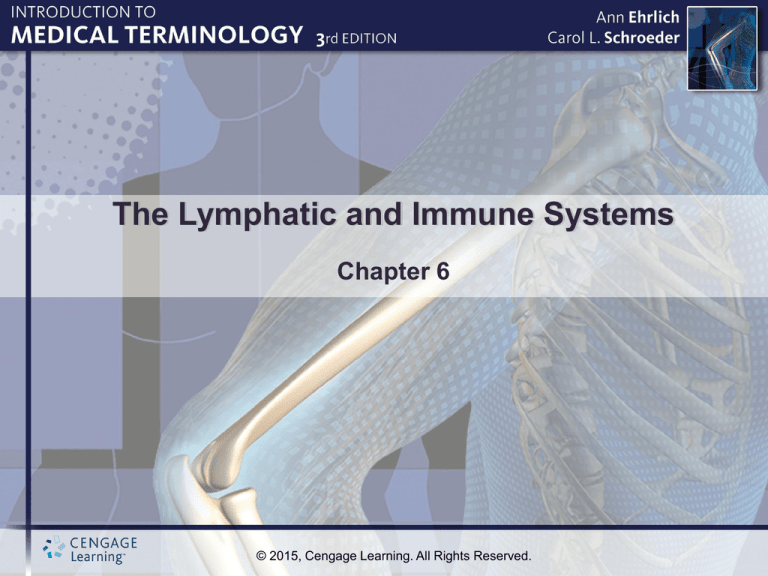
The Lymphatic and Immune Systems
Chapter 6
© 2015, Cengage Learning. All Rights Reserved.
Overview of Structures, Combining
Forms, and Functions of the
Lymphatic and Immune Systems
© 2015, Cengage Learning. All Rights Reserved.
Lymph
• Primary Function
– Removes cellular waste products, pathogens,
and dead blood cells from the tissues
• Related Word Parts (Combining Forms)
– lymph/o
© 2015, Cengage Learning. All Rights Reserved.
Lymph Vessels
• Primary Function
– Return lymph to the circulatory system
• Related Word Parts (Combining Forms)
– lymphangi/o
(continues)
© 2015, Cengage Learning. All Rights Reserved.
© Cengage Learning
Lymph Vessels
© 2015, Cengage Learning. All Rights Reserved.
Lymph Nodes
• Primary Function
– Produce lymphocytes
– Filter harmful substances from lymph
• Related Word Parts (Combining Forms)
– lymphaden/o
(continues)
© 2015, Cengage Learning. All Rights Reserved.
© Cengage Learning
Lymph Nodes
© 2015, Cengage Learning. All Rights Reserved.
Tonsils and Adenoids
• Primary Function
– Protect the entry into the respiratory system
• Related Word Parts (Combining Forms)
– tonsill/o
– adenoid/o
(continues)
© 2015, Cengage Learning. All Rights Reserved.
© Cengage Learning
Tonsils and Adenoids
(continues)
© 2015, Cengage Learning. All Rights Reserved.
© Cengage Learning
Tonsils and Adenoids
© 2015, Cengage Learning. All Rights Reserved.
Spleen
• Primary Function
– Filters foreign materials from the blood
– Maintains the appropriate balance between cells
and plasma in the blood
– Destroys old, worn-out blood cells, acts as a
blood reservoir, and stores platelets
(continues)
© 2015, Cengage Learning. All Rights Reserved.
© Cengage Learning
Spleen
(continues)
© 2015, Cengage Learning. All Rights Reserved.
Spleen
• Related Word Parts (Combining Forms)
– splen/o
• Note: This is spelled with only one e.
© 2015, Cengage Learning. All Rights Reserved.
Bone Marrow
• Primary Function
– Produces blood cells
• Related Word Parts (Combining Forms)
– myel/o
© 2015, Cengage Learning. All Rights Reserved.
Lymphocytes
• Primary Function
– Play an important role in immune reactions
• Related Word Parts (Combining Forms)
– lymphocyt/o
© 2015, Cengage Learning. All Rights Reserved.
Thymus
• Primary Function
– Produces T lymphocytes
– Secretes thymosin for the immune system
• Related Word Parts (Combining Forms)
– thym/o
© 2015, Cengage Learning. All Rights Reserved.
Key Word Parts and Definitions
• anti– against
• carcin/o
– cancerous
• immun/o
– immune, protection, safe
• lymph/o
– lymph, lymphatic tissue
(continues)
© 2015, Cengage Learning. All Rights Reserved.
Key Word Parts and Definitions
• lymphaden/o
– lymph node or gland
• lymphangi/o
– lymph vessel
• neo-, ne/o
– new, strange
• -oma
– tumor, neoplasm
(continues)
© 2015, Cengage Learning. All Rights Reserved.
Key Word Parts and Definitions
• onc/o
– tumor
• phag/o
– eat, swallow
• -plasm
– formative material of cells
• sarc/o
– flesh, connective tissue
(continues)
© 2015, Cengage Learning. All Rights Reserved.
Key Word Parts and Definitions
• splen/o
– spleen
• -tic
– pertaining to
• tox/o
– poison, poisonous
© 2015, Cengage Learning. All Rights Reserved.
Questions
© 2015, Cengage Learning. All Rights Reserved.
Question
Of the 400–700 lymph nodes located along the
larger lymphatic vessels, approximately half of
these nodes are in the abdomen.
True or False?
© 2015, Cengage Learning. All Rights Reserved.
Question
The tonsils are made up of muscle tissue.
True or False?
© 2015, Cengage Learning. All Rights Reserved.
Question
Which type of immunity is passed from mother
to child after birth?
a. natural immunity
b. passive immunity
c. acquired immunity
© 2015, Cengage Learning. All Rights Reserved.
Question
Rubella, or German measles, originated in
Germany.
True or False?
© 2015, Cengage Learning. All Rights Reserved.

